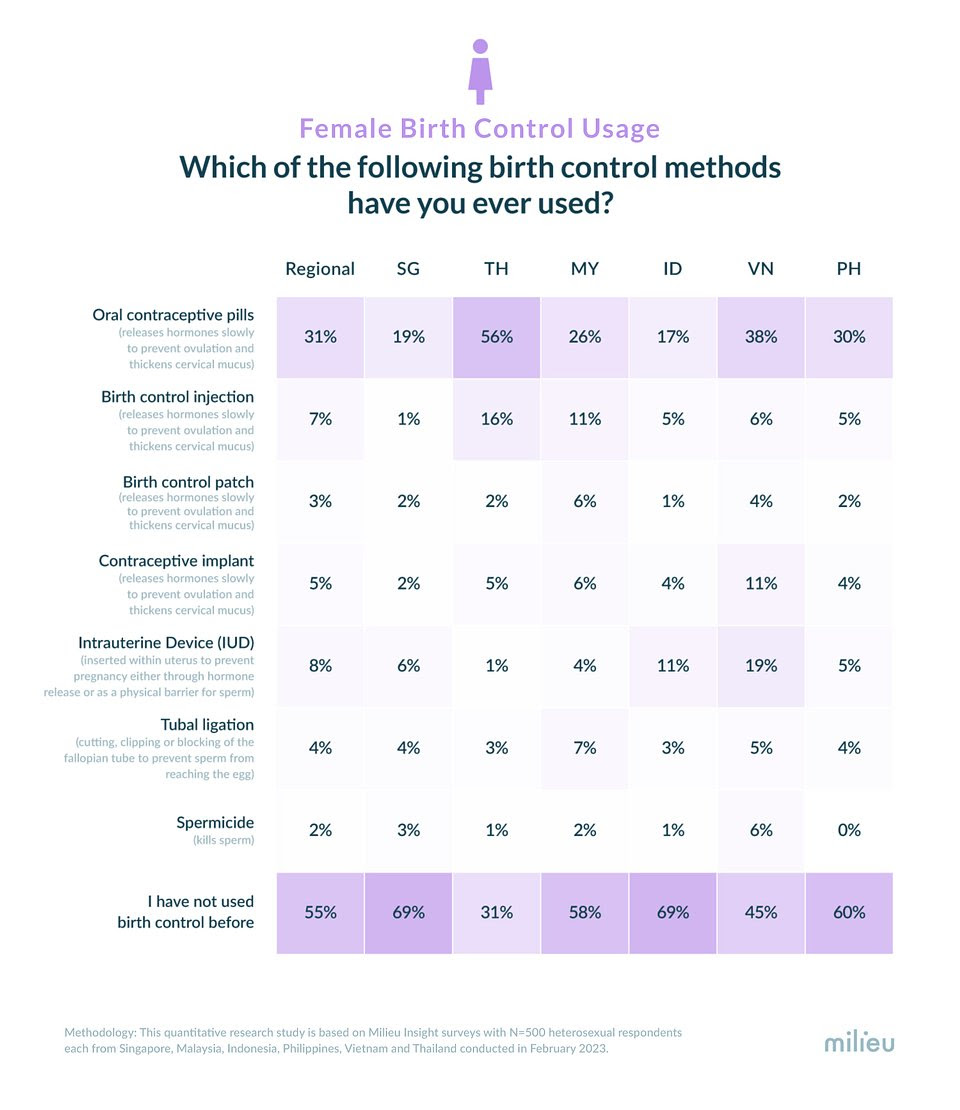44% of SEAs never used birth control

Article written by: Mashable Southeast Asia
It's a given that birth control products have become game-changers when it comes to allowing people to engage in sexual activity, but over in Southeast Asia, it appears that a large percentage have not even tried using any of the options available.
Recently, Southeast Asian consumer research firm Milieu Insight performed an intriguing survey across six countries to analyze the region's use of birth control and shared duties to avoid unwanted pregnancies.
The results showed that in Singapore, barely 20 percent of women used oral contraceptives, and 69% of surveyed females said they "had never used birth control previously."
This shows that many women in the region still do rely on their male partners to shoulder the duty of using condoms or opt for more permanent solutions like vasectomies.

Also in the report, six out of ten women interviewed in the Philippines had not used birth control. Surprisingly, just 61% of male respondents in the Philippines had used condoms as a means of birth control, compared to 91% in Thailand.
The situation in Indonesia isn't that different, either. Just one percent of men had had vasectomies, and fewer than half (45 percent) used condoms for pregnancy control. Despite being the most prevalent type of birth control among women in Southeast Asia, just 17 percent utilized oral contraceptives.
When asked about vasectomy as a type of permanent birth control, 66 percent of males in the region said they would not consider it, despite it being one of the most reliable means of pregnancy control.

So, what's the deal with this aversion to vasectomies? According to the data, the biggest reasons include not wanting to have a permanent surgery (50 percent), not liking like the idea of getting a vasectomy (39 percent), and believing it would hinder their sexual performance and drive (31%). Also, a substantial 26% stated that they did not have adequate knowledge on getting a vasectomy.
Additionally, it estimated from the survey results that throughout the six countries involved, around 44 percent had never once used any form of birth control throughout their lives.
But it's not all dire. The survey also discovered that 79 percent of females felt very or somewhat comfortable taking birth control substances. In fact, 61 percent of Thai women have used oral contraceptives, about twice as many as in the Philippines.
It's worth noting that the Internet is where majority of respondents (63 percent) would prefer to learn about birth control, followed by information from medical doctors (41 percent). As a result, it appears that there is a significant potential to educate and enlighten individuals about birth control methods.
Overall, this study serves as a clear reminder of the need for increased birth control awareness and availability throughout Southeast Asia. It's time to break the silence and have an open discussion on the value of birth control for individuals and society as a whole.

Author
Milieu Team
At Milieu, we’re a team of curious minds who love digging into data and uncovering what drives people. Together, we turn insights into stories—and stories into action. We also run on coffee, deadlines, and the occasional meme.
.avif)


